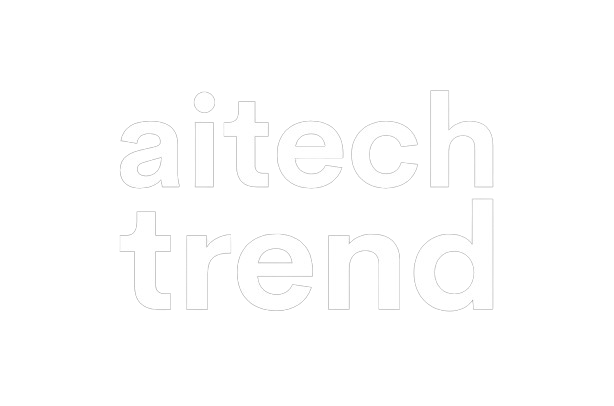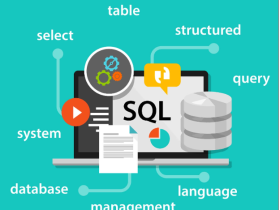Python has gained immense popularity as a versatile programming language across various domains, including game development. Its simplicity, readability, and vast ecosystem make it an excellent choice for developers looking to create engaging games. In this article, we will explore the top nine Python frameworks for game development and discuss their features, benefits, and use cases.
Introduction
Python frameworks for game development provide a solid foundation and toolset for creating interactive and visually appealing games. These frameworks offer a range of functionalities, including graphics rendering, input handling, collision detection, and sound management. By leveraging these frameworks, developers can streamline the game development process and focus more on creating compelling gameplay experiences.
What are Python frameworks for game development?
Python frameworks for game development are libraries or collections of modules that simplify and accelerate the creation of games. They provide pre-built components and functionality tailored specifically for game development, allowing developers to write less code while achieving desired outcomes. These frameworks often integrate with other libraries, such as graphics engines, physics engines, and audio libraries, to offer comprehensive game development capabilities.
Benefits of using Python frameworks for game development
Rapid development
One of the significant advantages of using Python frameworks for game development is the accelerated development process. These frameworks come with a wide range of pre-built components, such as sprites, animations, and collision detection, which significantly reduce the time and effort required to implement common game features. Developers can focus on the unique aspects of their game, leading to faster iterations and shorter development cycles.
Cross-platform compatibility
Python frameworks for game development provide cross-platform compatibility, allowing games to run seamlessly on different operating systems and devices. Python’s portability enables developers to target multiple platforms without extensive modifications to the codebase. This versatility is particularly beneficial in reaching a broader audience and maximizing the game’s potential user base.
Large community support
Python boasts a vast and active community of developers, including those dedicated to game development. This thriving community contributes to the development and improvement of various Python frameworks. Developers can leverage community resources, such as forums, tutorials, and code repositories, to gain insights, share knowledge, and address challenges encountered during the game development process.
Top 9 Python frameworks for game development
1. Pygame
Pygame is a popular and widely used Python framework for game development. It provides a robust set of tools and libraries for handling graphics, audio, and input. Pygame’s simplicity and ease of use make it an excellent choice for beginners and prototyping. It offers extensive documentation, a large community, and compatibility with multiple platforms.
2. Panda3D
Panda3D is a powerful open-source framework that offers a wide range of features for game development. It includes advanced graphics capabilities, physics simulation, animation, and sound support. Panda3D provides a high level of control and flexibility, making it suitable for both 2D and 3D game development. Additionally, it supports various platforms, including Windows, macOS, and Linux.
3. Cocos2d
Cocos2d is a popular Python framework known for its simplicity and versatility. It supports both 2D and 3D game development and provides a comprehensive suite of tools for creating visually stunning games. Cocos2d offers features like scene management, sprite animation, particle systems, and user input handling. It also has a vibrant community that contributes to its growth and offers valuable resources.
4. Pyglet
Pyglet is a lightweight, easy-to-use framework specifically designed for game development in Python. It focuses on providing efficient multimedia and windowing capabilities. Pyglet supports audio and video playback, 2D graphics rendering, and handling of user input. It is a cross-platform framework and integrates well with other libraries, making it a good choice for developing small to medium-sized games.
5. Arcade
Arcade is a beginner-friendly Python framework that simplifies game development by providing a user-friendly API. It focuses on 2D game development and offers built-in functions for handling sprites, collisions, and animations. Arcade also provides a physics engine and supports sound effects and music. Its clear documentation and supportive community make it an excellent choice for developers new to game development.
6. PyOpenGL
PyOpenGL is a Python binding for OpenGL, a widely used graphics library for creating interactive 2D and 3D applications, including games. It enables developers to leverage the full power of OpenGL within Python to create visually appealing and high-performance games. PyOpenGL provides a low-level interface, allowing fine-grained control over graphics rendering and advanced effects.
7. Pygame Zero
Pygame Zero is a simplified version of Pygame that focuses on simplicity and ease of use. It is an excellent choice for beginners and educators teaching game development. Pygame Zero provides a minimalistic API and abstracts away complex game development concepts. It offers built-in support for common game elements like sprites, sounds, and input handling.
8. Godot
While not strictly a Python framework, Godot is a popular open-source game engine that supports Python scripting. It provides a visual development environment and a powerful set of tools for creating games of various genres. Godot supports both 2D and 3D game development, offers a rich library of pre-built components, and allows seamless integration with Python code for added flexibility.
9. Ren’Py
Ren’Py is a unique Python framework specifically designed for creating visual novels and interactive storytelling games. It provides a comprehensive suite of tools for creating branching narratives, managing character dialogues, and integrating multimedia elements. Ren’Py’s scripting language is based on Python, making it accessible for developers familiar with Python syntax.
Comparison of the top Python frameworks
When choosing a Python framework for game development, it’s essential to consider several factors. Let’s compare the top Python frameworks based on various criteria:
Features and capabilities
Each framework offers different sets of features and capabilities. Some frameworks excel in graphics rendering, while others focus on ease of use or cross-platform compatibility. Consider the specific requirements of your game project and choose a framework that aligns with your needs.
Learning curve
The learning curve varies among the different frameworks. Some frameworks prioritize simplicity and ease of use, making them suitable for beginners. Others may have a steeper learning curve but offer more advanced features and customization options. Consider the experience and expertise of your development team when selecting a framework.
Documentation and resources
The availability of comprehensive documentation and resources greatly influences the ease of development. Frameworks with extensive documentation, tutorials, and community support can significantly speed up the learning process and help developers overcome challenges. Consider the quality and availability of documentation when making your framework choice.
Community support
A vibrant and active community can provide valuable assistance, support, and resources throughout the game development process. Frameworks with large and engaged communities often have active forums, community-driven extensions, and a wealth of shared knowledge. Having a supportive community can greatly benefit developers, especially when facing complex issues or seeking best practices.
Factors to consider when choosing a Python framework for game development
When selecting a Python framework for game development, several factors should be considered:
1. Project requirements
Evaluate the specific requirements of your game project. Consider aspects such as the desired game genre, graphics complexity, performance needs, and target platforms. Each framework may excel in different areas, so choose one that aligns with your project’s unique needs.
2. Development team’s expertise
Assess the skills and experience of your development team. If your team is already proficient in Python or has experience with specific frameworks, leveraging their expertise can lead to faster development and better results. Alternatively, if your team is new to game development or Python, choosing a beginner-friendly framework can ease the learning curve.
3. Target platforms
Consider the platforms you intend to release your game on. Ensure that the chosen framework supports the desired platforms, such as Windows, macOS, Linux, or mobile platforms like iOS and Android. Cross-platform compatibility allows you to reach a wider audience and maximize the game’s potential.
4. Performance considerations
Evaluate the performance requirements of your game. Some frameworks may offer better performance optimization or be more suitable for resource-intensive games. Consider factors like rendering capabilities, optimization techniques, and support for hardware acceleration.
Conclusion
Python frameworks have revolutionized game development by providing developers with powerful tools and libraries. They offer a range of features, ease of use, and cross-platform compatibility, making them ideal for creating engaging games. In this article, we explored the top nine Python frameworks for game development, including Pygame, Panda3D, Cocos2d, Pyglet, Arcade, PyOpenGL, Pygame Zero, Godot, and Ren’Py. Each framework has its strengths and focuses, catering to different development needs.
When choosing a Python framework, consider factors such as project requirements, team expertise, target platforms, and performance considerations. By selecting the right framework, you can streamline your game development process, create captivating gameplay experiences, and unleash your creativity.












Leave a Reply